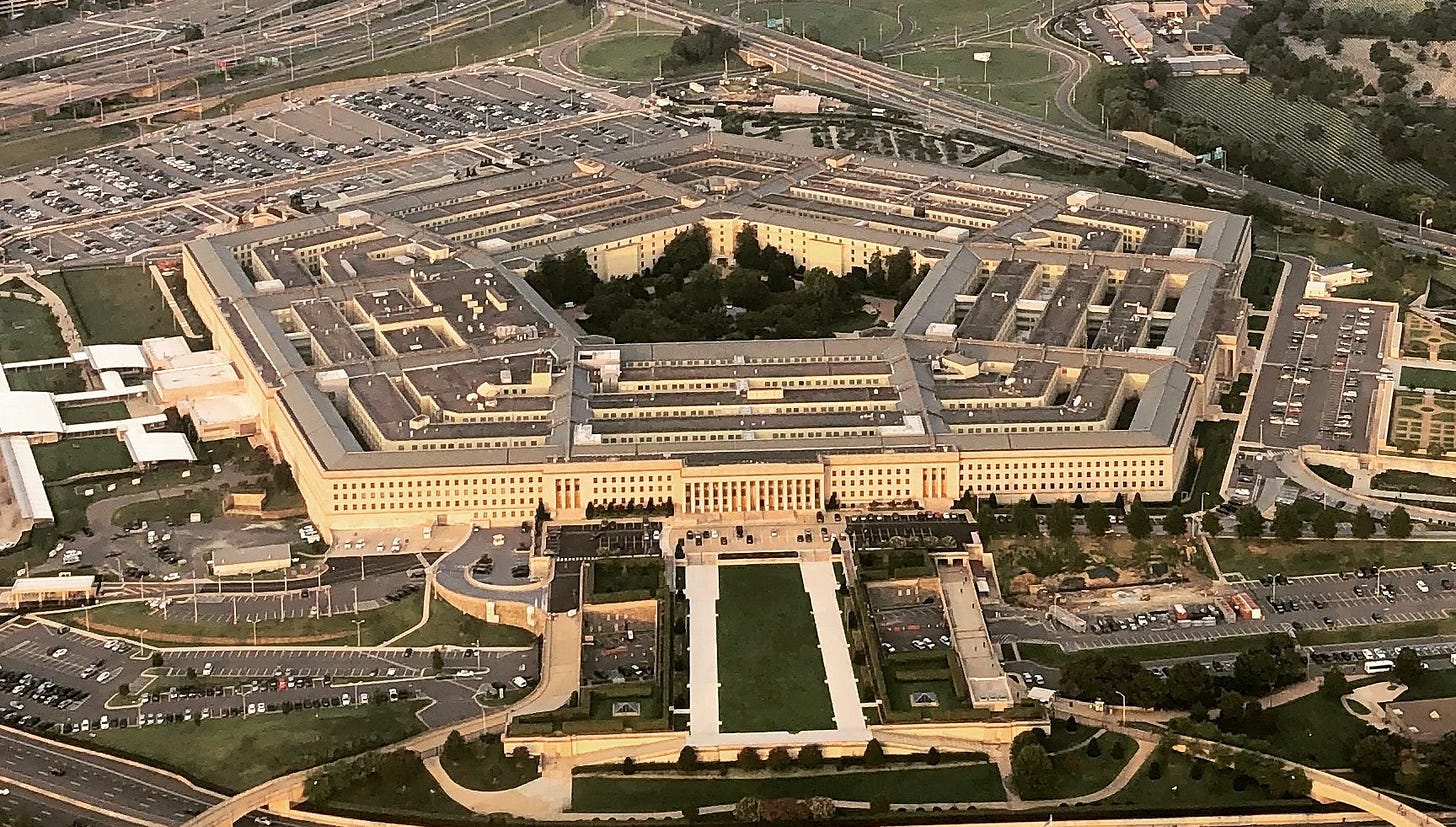10 Things Global News - 14th October 2025
Interesting and important news from around the world
Netanyahu Skips Gaza Peace Summit in Egypt
Pentagon Press Pledge Sparks Broad Media Revolt
Madagascar’s Leader Flees Amid Military Revolt
Tariff Threats Loom Over IMF–World Bank Week
Troops Face Missed Pay Amid US Shutdown
UK Warns of Surge in High-Impact Cyber-Attacks
Macron Blames Rivals as French Crisis Deepens
India Accuses Pakistan of Child Rights Violations at UN
Netherlands Seizes Control of China-Owned Chipmaker
US Probes Starlink Over Myanmar Scam Hubs
On this day ….
On this day in 1066, William of Normandy defeated King Harold II at the Battle of Hastings, bringing Norman rule to England. The conquest reshaped the English language, law and governance, and set the island on a trajectory of continental entanglement that still defines its foreign policy.
The legacy of that shift — a nation forged through invasion yet deeply resistant to external control — continues to echo in British debates over sovereignty, from imperial expansion to Brexit.
The United Kingdom rose to great heights in the 18th and 19th century - do you still see them as a great power?
A major summit in Sharm el-Sheikh aimed at formalising an end to the Gaza war went ahead without Israeli Prime Minister Benjamin Netanyahu, who declined an invitation from US President Donald Trump citing the proximity of a Jewish holiday.
The meeting, co-chaired by Trump and Egyptian President Abdel Fattah el-Sisi, brought together leaders and dignitaries from more than 30 countries and organisations to endorse a ceasefire agreement and discuss the region’s future stability.
Palestinian Authority President Mahmoud Abbas attended, as did key figures including Turkey’s Recep Tayyip Erdogan, France’s Emmanuel Macron, and the UN Secretary-General Antonio Guterres. Despite Erdogan’s diplomatic opposition to Netanyahu’s presence, Israel’s leader thanked Trump for his efforts to “expand the circle of peace.”
The summit followed the implementation of a ceasefire that saw Hamas release 20 Israeli hostages and Israel free 1,968 Palestinian prisoners, though disputes remain over Hamas’s failure to return all deceased captives.
Sources: Reuters, Mercopress
The Pentagon has announced sweeping new restrictions on journalists covering the US military, requiring them to sign a pledge not to report any information not explicitly authorised for release — even if unclassified.
The policy, introduced by Defence Secretary Pete Hegseth under the rebranded “Department of War,” warns that reporters who refuse will lose their credentials and be barred from Pentagon facilities. Hegseth argued the change reflects public control over defence decisions, insisting that “the press does not run the Pentagon.”
By Touch Of Light - Own work, CC BY-SA 4.0
Major news organisations across the political spectrum — from the New York Times and Washington Post to Newsmax and the Washington Times — have refused to sign, calling the rules unconstitutional and a threat to press freedom. Media groups say the restrictions undermine the public’s right to scrutinise nearly $1 trillion in military spending, and legal challenges are now being considered as pressure mounts for the Pentagon to reverse course.
Sources: NPR, Washington Post
Madagascar’s President Andry Rajoelina has fled the country after losing the support of a key military unit amid escalating protests against corruption and poor governance. The elite Capsat unit, which helped bring him to power in 2009, joined youth-led demonstrations and declared control of the armed forces, prompting Rajoelina to say he feared for his life and that an “illegal attempt to seize power” was underway. He was reportedly flown out on a French military aircraft after weeks of unrest.
The protests, sparked by chronic water and electricity shortages, have grown into the most serious challenge to Rajoelina’s rule since he returned to office in 2023.
At least 22 people have died, according to the UN, which criticised the authorities’ violent response. Capsat soldiers have called for his resignation but denied staging a coup, insisting it is for the Madagascan people to decide the country’s political future.
Sources: The Guardian, Euronews
Finance chiefs in Washington had expected to focus on global resilience, but U.S.–China tensions re-ignited after President Trump threatened 100% duties on Chinese imports from 1 November and suggested cancelling a meeting with President Xi. The move followed Beijing’s tighter rare-earths export controls, raising fears the tariff truce could unravel and trade hostilities resume.

Although this week a proposal will be explored to provide a cushion to emerging market bond issuers - a potential break on interest payments when natural disasters, pandemics or armed conflicts strike. Bondholders believe this relief mechanism could avert default and calm markets in future if needed.
U.S. Treasury Secretary Scott Bessent adopted a softer tone toward China, saying staff-level talks would occur during the meetings and that the Trump–Xi encounter could still proceed, adding the “100% tariff does not have to happen.”
Markets rebounded, with the Nasdaq up more than 2% and other major indices over 1%. China’s licensing controls underscore its leverage in rare earths, where it dominates supply and processing, a key pressure point in the dispute.
Sources: Reuters, Bloomberg
The US government shutdown is set to hit harder this week as military personnel face missing their first paycheques on 15 October amid a partisan stalemate over health-care policy. The administration has floated paying troops using tariff and tax revenues, but without congressional action the mechanism is unclear. House Speaker Mike Johnson has declined to recall lawmakers, while backing the administration’s plan to cover the 15 October pay date.
Pressure is building around expiring health-insurance subsidies, with insurers issuing notices of higher premiums. Democrats want any deal to reopen government to include an extension of these credits; Republican leaders say negotiations should wait until after reopening.
Signs of strain have appeared within Republican ranks, even as the dispute deepens following the firing of more than 4,000 federal workers and warnings from the vice-president that further dismissals are likely.
Sources: Bloomberg, Straits Times
The UK’s National Cyber Security Centre reports a 50% rise in “highly significant” cyber-attacks over the past year, with nationally significant incidents now occurring more than every other day. Officials issued a “call to arms,” urging organisations to prepare contingency plans for operating without IT and to treat cyber-resilience as a board-level responsibility. Ministers have written to major companies, while GCHQ’s director urged leaders to prioritise risk management.
Ransomware remains the main driver, alongside increased dependence on technology. The NCSC handled 429 incidents in the year to September, nearly half classed as nationally significant, including 18 at the highest impact tier short of a national emergency. Recent disruptions ranged from large retailers to European airports.
Guidance stresses offline, paper copies of response plans and a shift toward “resilience engineering” to anticipate, absorb and recover from attacks, as state-linked actors and criminal gangs intensify activity.
Sources: The Guardian, BBC
Emmanuel Macron accused opposition parties of fuelling “chaos” after reappointing Sébastien Lecornu as prime minister and unveiling a new cabinet. Lecornu, France’s seventh PM under Macron, resigned last Monday before being reinstated on Friday and now faces threats of censure in a deeply divided National Assembly. Macron, speaking in Egypt at a Gaza summit, rejected calls to resign and said rivals were “solely responsible” for destabilising the government.
Lecornu’s immediate task is to steer a 2026 budget through parliament, with the government signalling a draft aiming for a deficit below 5% of GDP and allowing 70 days for scrutiny.
The reworked cabinet mixes centrists with senior figures from public bodies, including former SNCF head Jean-Pierre Farandou as labour minister and Laurent Nuñez as interior minister. The left and far right plan no-confidence motions, while Socialists warn they could vote against unless the 2023 pension law is revisited.
Sources: France 24, The Guardian
India has accused Pakistan of being one of the worst violators of the United Nations’ Children and Armed Conflict agenda, citing abuses within its borders and cross-border violence. Addressing the UN General Assembly in New York, MP Nishikant Dubey condemned Islamabad’s attempts to deflect criticism while failing to protect children in conflict zones and targeting civilians in neighbouring countries.
Dubey highlighted cross-border shelling and airstrikes near Afghanistan that have killed and injured children, as well as attacks on girls’ schools and incidents inside India, including a deadly assault in Pahalgam in April. He also criticised Pakistani troops for firing on Indian border villages in May, causing civilian casualties.
Defending India’s own actions, he said Operation Sindoor — strikes on nine terror camps in Pakistan and Pakistan-administered Kashmir — was a legitimate response to ongoing terrorism and a measure to safeguard civilians.
Sources: Times of India, Newsonair
The Dutch government has taken control of Nexperia, a Chinese-owned semiconductor firm based in Nijmegen, citing “serious governance shortcomings” and risks to Europe’s technological security. The decision, made under the Goods Availability Act, gives authorities the power to reverse or block company decisions, including asset transfers and executive appointments, in order to protect chip supply and safeguard intellectual property.
Officials said the move was necessary to prevent the loss of critical technological capacity and ensure that European industries, such as car manufacturing, are not exposed in an emergency. Nexperia, controlled by China’s Wingtech since 2019, called the decision “excessive interference” and is seeking government support and legal remedies.
The action has raised the prospect of deeper trade tensions between Beijing and the EU, which is already navigating a wider chips dispute with the United States. Wingtech’s shares fell 10% following the announcement.
Sources: BBC, Politico Europe
Fraud compounds around Myawaddy in Myanmar are expanding despite a February crackdown that freed about 7,000 people, with satellite images showing rapid new construction. AFP footage indicates extensive use of Starlink, including at least 80 dishes on one KK Park roof, as Thailand cut power and internet lines.
Although Starlink is not licensed in Myanmar, APNIC data shows it rose from negligible traffic in April to the country’s largest provider from July to October. SpaceX has not responded to requests for comment.
A bipartisan US Congress Joint Economic Committee has opened an investigation into Starlink’s involvement; Senator Maggie Hassan has urged Elon Musk to block service to the compounds. Americans are among the top targets, with US Treasury estimating losses of $10 billion last year. Experts say Chinese-led syndicates, working with Myanmar militias, run romance and investment scams in heavily guarded sites that rely on trafficking and forced labour.















